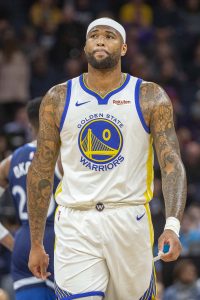A disabled player exception can be granted when an NBA team has a player go down with an injury deemed to be season-ending. The exception gives the club some additional spending flexibility, functioning almost as a cross between a traded player exception and a mid-level exception.
We go into more detail on who qualifies for disabled player exceptions and how exactly they work in our glossary entry on the subject. But essentially, a DPE gives a team the opportunity to add an injury replacement by either signing a player to a one-year contract, trading for a player in the final year of his contract, or placing a waiver claim on a player in the final year of his contract.
Because the rules related to disable player exceptions are somewhat restrictive and the exceptions themselves often aren’t worth a lot, they often simply expire without being used. Still, it’s worth keeping an eye on which disabled player exceptions have been granted, just in case.
We’ll use this space to break down the teams with DPEs available for the 2019/20 league year, updating it as the season progresses. Teams have until January 15 to apply for a disabled player exception and until March 10 to actually use them.
Teams that have been granted disabled player exceptions:
- Detroit Pistons: $9,258,000 (Blake Griffin) (story)
- Orlando Magic: $4,629,000 (Al-Farouq Aminu) (story)
Washington Wizards: $4,365,079 (C.J. Miles) (story)- Used to acquire Shabazz Napier.
- New Orleans Pelicans: $3,625,000 (Darius Miller) (story)
- Portland Trail Blazers: $2,859,000 (Rodney Hood) (story)
Los Angeles Lakers: $1,750,000 (DeMarcus Cousins) (story)- Used to sign Markieff Morris.
- Cleveland Cavaliers: $1,017,900 (Dylan Windler) (story)
- Brooklyn Nets: $839,427 (David Nwaba) (story)
Many of the teams that have been granted disabled player exceptions have full 15-man rosters, so they would have to open up a roster spot in order to use their DPEs.
So far, only the Lakers and Wizards have used their disabled player exceptions. Now that the trade deadline has passed, the remaining exceptions are less likely to be used, since teams like the Pistons, Magic, Pelicans, Trail Blazers, Cavaliers, and Nets are unlikely to be in the market for free agents who require more than minimum-salary investments.
Teams/players ineligible for disabled player exceptions:
- Orlando Magic (Jonathan Isaac) (story)
- Washington Wizards (John Wall) (story)
The Wizards applied for a disabled player exception for Wall during the first week of the 2019/20 league year. Word that the NBA had denied that request didn’t surface until October, but the league’s decision makes sense. After all, Wall underwent Achilles surgery all the way back in February.
In order for a DPE to be approved, the injured player must be considered substantially more likely than not to be sidelined through June 15 of that league year. Recovery from Achilles surgery is generally viewed as an 11-15 month process, whereas June 15 would’ve been more than 16 months since Wall underwent that procedure.
The Magic are in the same boat with Isaac. His knee injury apparently isn’t serious enough that the NBA is willing to count on him being sidelined through June 15, so Orlando’s DPE request was denied.
Photo courtesy of USA Today Sports Images.
Will Golden State apply for one for Thompson? Regardless of hard cap, may as well put the arrow in your quiver.
If they do, I’d be curious to see if it’s approved. They’d have a better case than the Wizards with Wall, but it wouldn’t be a lock.
Blah blah blah